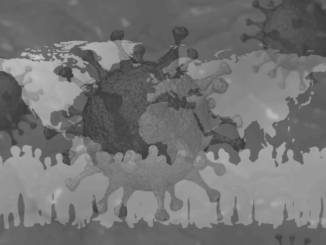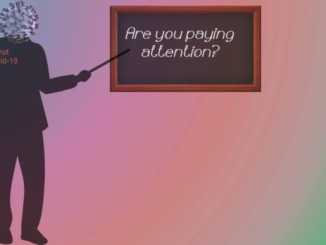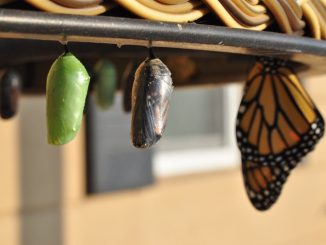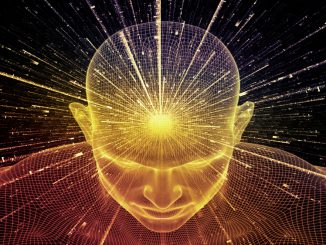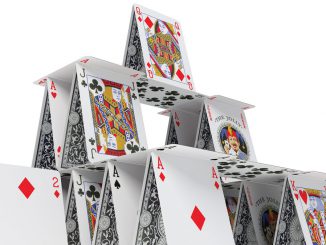
In the previous parts of the present article, we have already examined the underlying assumptions of the currently existing economic model and challenged its validity as a kind of ultimate truth. So, what next? Before we can even think of an alternative, we first need to be convinced that a new model is possible.
Needs of body or needs of mind?
In its roots, the model is based on materialistic/utilitarian approach where it is assumed that ever increasing material possession and consumption are the means to ultimate well-being and happiness. If we examine carefully, however, what we are going to discover is that beyond the immediate survival needs of the physical body, materialism is just a form of entertainment for our mind or psyche.
As far as this mind or psyche is non-material, it does not have a practical way to benefit from material possessions. Beyond the natural physical needs, all material possessions can be enjoyed and bring satisfaction only as an idea and not as something physically useful. You can physically wear only one pair of clothes at a time and can only enjoy the thought about a wardrobe full of clothes that you have at home. Once you have had an abundant dinner, you can only enjoy the idea that there is more food on the table.
In that sense, as far as the mind is concerned the constant craving for ever-growing material abundance is in no way inherent to its nature. It can (and has been) trained to enjoy it as it can be trained to enjoy any other idea. However, the assumption that people are naturally driven towards gaining more and more material possessions is no way a fact supported by hard and undeniable evidence.
Think about marketing industry. If the materialistic inclination was natural, why the need for such industry at all? It is all about manipulating people into believing that they need a product they often do not. Elaborate techniques are used to trick you into buying (for example a smartphone with functionalities you never use) or newer TV set with several million new colors (which the eye of the average human might never distinguish).
Subtleties behind the scenes
In terms of production, while we have more fancy products, it seems that they are less and less durable and it is not by chance. The sophistication of product life cycles and the progress in technological knowledge has opened new possibilities to the insatiable greed of corporations. Nowadays the usability of the product can be to a large degree “pre-programmed”.
Have you ever wondered while your electronic devices often start to malfunction shortly after their warranty is expired? Why the shape of charger cables for mobile devices is regularly revised by the producers? Do you have a TV purchased 7 years ago which has outlived 2 or 3 “state-of-the-art” ones? Much of those (if not all) happen by design, where the manufacturer has as its goal to make you buy the same product repeatedly rather than trying to satisfy your need in a long-lived manner.
We can bring further arguments (and I am sure anyone of us can find evidence from own experience). The point is that in many ways, the materialistic/utilitarian approach is something that we have been taught to adopt and is being carefully maintained. It is not something that is inherent to our nature.
Therefore, the whole economic model that is centred around the idea of insatiable needs of human beings, cannot be in any way asserted as either the only possible nor the best model. In fact, in its initial form the emerging scientific discipline of economics was more focused on trying to understand the underlying logic in economic interactions. Nowadays it seems to be focused on conditioning us into what economic interaction should be like.
(Un)knowingly helping the shift
At first, on an individual level we should re-evaluate what really counts in life for us personally.
Do we really need all the things that we buy? Do we buy because we need or we just follow suit? Do we work more than we actually want to be able to buy things we do not actually need? Are there any things that give us more sense of fulfillment that are not in any way related to buying and possessing things? Can we work less, spend less and have more time to do things that we actually like? When we buy more, do we get closer to being satisfied with what we have or actually find ourselves craving for ever more?
One of the reasons why the economic model is failing nowadays seems to be that more people start to ask such questions to themselves. It might be just a somewhat unconscious hint of doubt but it is there. A hint that there is something fundamentally wrong and unhealthy about materialistic mentality. A hint that constant craving for more is a burden and being satisfied with less is a release.
The more evident this revelation, the more people seem to discover that they do not actually care for their long-held priorities in life. They start getting some intuitive insight that beyond meeting certain natural needs, chasing of material possessions and never-ending consumption is a form of madness. It makes our lives complicated rather than simple.
Such people are less and less supportive to the system in their choices. The inner turbulence and restlessness resulting from the subtle (or sometimes evident) dissatisfaction with materialistic mentality, manifest externally. And while its manifestation is often random and confused, it dismantles the efficiency of the model. People become unpredictable in many ways – in the way they do their jobs, in their non-professional activities, in their relationships. All these tremors translate into the existing social and economic structure putting it under pressure.
Bound to disappear
Eventually, the current economic structure will fall apart … because by its very design it can thrive only upon our acceptance and willingness to support it. The more we break free from the illusion that material wealth can be the ultimate purpose and means towards personal fulfillment, the closer we get to the imminent collapse of the old paradigm.
While we do not know what will come out from the ruins of the old, there will be at the least the possibility for something better. The old economic framework is too deeply rooted and does not allow for alternatives. Only from its ashes such alternatives will come into existence. Alternatives that might be better suited to cater for our real needs rather than artificial desires.
Ultimately you can face the global economic turmoil with a smile – in the end of the day, it is good news.

